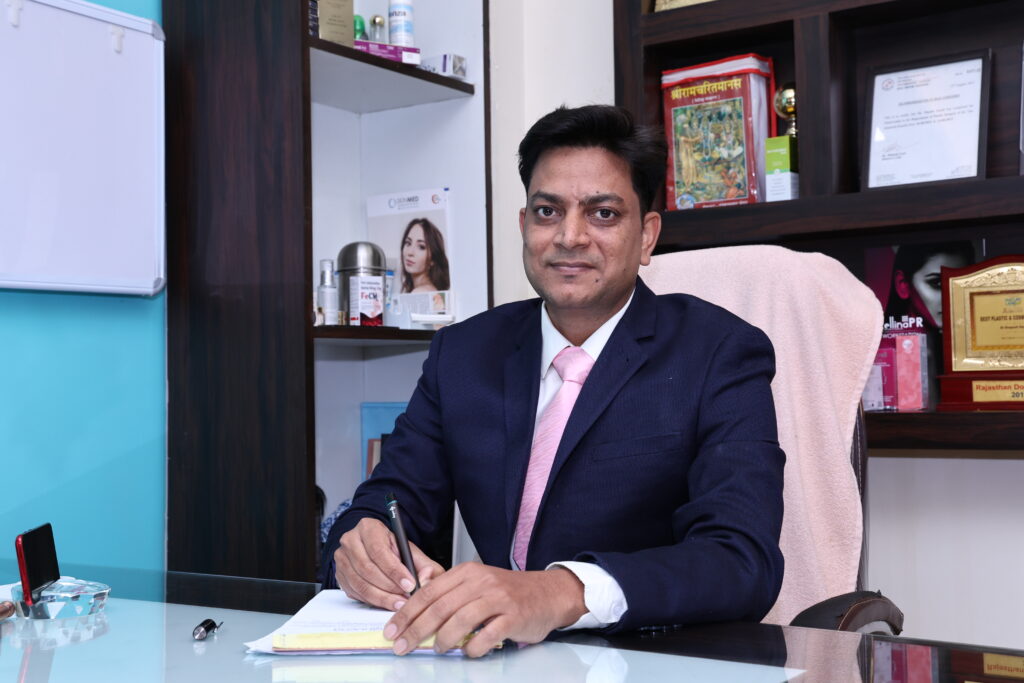
These lip filler lumps months later may catch you off guard, but they’re not always a sign of something going wrong. In most cases, these late-onset lumps are treatable. At Rejuvena Cosmo Care, the leading plastic surgery clinic in Jaipur, we often see patients who are confused or concerned about these delayed reactions. Understanding the cause and knowing what steps to take can ease your mind and help restore smooth, natural results.
In this article, we’ll explore why these lumps form, what they mean, how to prevent them, and when expert care is needed.

Understanding Lip Filler Procedures and Delayed Lumps
Most lip fillers are made of hyaluronic acid (HA), a naturally occurring substance that holds moisture and adds volume. The treatment is generally well tolerated, and immediate swelling, firmness, or minor irregularities usually subside within a week or two.
However, some patients develop lumps months after the initial injection. These may feel like tiny beads under the skin or cause visible bumps that distort the lip line.
There are several explanations for this, including:
- Delayed swelling or immune response
- Filler migration
- Formation of granulomas
- Biofilm-related infection
- Poor injection technique
While many of these lumps are benign, professional evaluation is key to determining the right treatment, especially if there’s pain, redness, or asymmetry.
What Happens When Lip Filler Lumps Form Months Later?
Over time, the filler can shift, especially if the product was over-injected or placed too superficially. Physical pressure, dental work, or even immune changes from illness or vaccines can trigger reactions months after injection.
Most patients report:
- Small, round nodules under the skin
- Soft but slightly firm texture
- No major discomfort (in mild cases)
- Lumps that feel different when you move your lips
But in more serious cases, lumps may be:
- Red, warm, and painful
- Hard and immobile
- Visibly distorting the lips
“Late-onset filler lumps are typically treatable and rarely permanent,” says Dr. Deepesh Goyal, founder of Rejuvena Cosmo Care. “But a thorough assessment ensures we catch any issues early.”Several internal and external factors increase the likelihood of developing lip filler lumps months later:
- Filler migration due to overfilling or muscle activity
- Inflammatory response from illness or medications
- Biofilm bacteria from poor injection hygiene
- Allergic reactions (rare with modern HA fillers)
- Low-quality products or incorrect filler selection
- Inexperience or poor technique during injection
- Repeat injections in the same site too soon
Smoking, excessive alcohol intake, or immune suppression can also increase the risk of filler complications.
Treatment Options for Lip Filler Lumps

Treatment depends on the lump’s cause. At Rejuvena, each plan is personalized:
- Gentle massage: For soft, mobile lumps not linked to inflammation
- Hyaluronidase enzyme injections: Breaks down HA-based fillers safely and quickly
- Steroids or NSAIDs: Help reduce inflammation if the lump is immune-related
- Antibiotics: For treating bacterial biofilm or low-grade infection
- Surgical drainage (rare): For abscesses or severe nodules
- Filler reversal and reinjection: In cases where aesthetics have been compromised
All treatments are done after thorough assessment by a board-certified expert to ensure safety and symmetry.
Can Lip Filler Lumps Be Prevented?
Yes—prevention begins before the injection itself:
- Always choose a qualified and experienced injector
- Use FDA-approved, HA-based fillers
- Avoid vigorous pressure on the lips (e.g., massages, biting, or sleeping face-down)
- Don’t combine fillers with other facial procedures too closely
- Avoid alcohol, saunas, and intense workouts in the 48 hours post-procedure
- Follow all post-treatment instructions carefully
- Let your doctor know about any recent illness or dental work
At Rejuvena Cosmo Care, we follow advanced safety protocols and use only high-quality filler products to reduce the chance of post-treatment complications.
Conclusion
If you’ve noticed lip filler lumps months later, know that you’re not alone—and you’re not without options. These lumps are more common than you think and are almost always manageable with expert care.
Whether it’s a minor irregularity or a firmer nodule, it’s worth consulting a skilled practitioner to get clarity and the right treatment. At Rejuvena Cosmo Care, we’ve helped hundreds of patients resolve delayed filler reactions safely, comfortably, and effectively.
Your lips deserve more than guesswork—they deserve trusted care, aesthetic skill, and lasting results.
Frequently Asked Questions
Are lip filler lumps months later normal?
How are lip filler lumps treated?
Can filler lumps appear after dental work or illness?
Disclaimer: This page is for informational purposes and not for promotional use.

